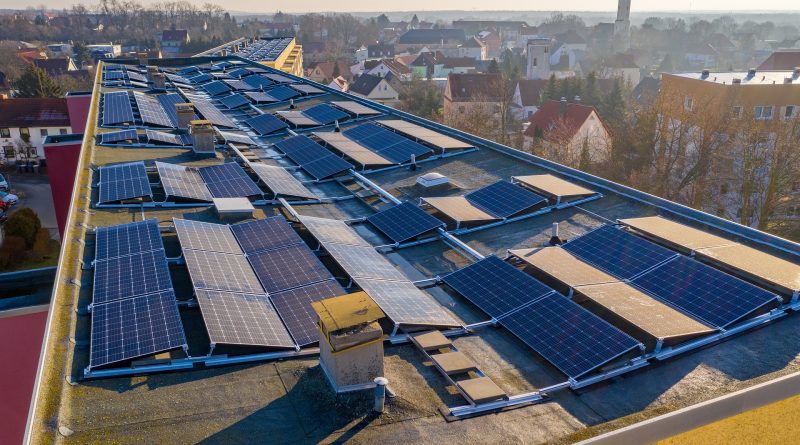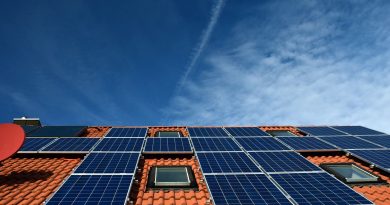Explaining Off-Grid Solar Power Systems
Off-grid solar power is a sustainable and reliable way to generate electricity without being connected to the main electrical grid. It involves harnessing the power of the sun through solar panels and storing the energy in batteries for use when the sun is not shining. This blog will delve deeper into what off-grid solar power is, how it works, its advantages, and the potential challenges it may present.
Table of Contents
What is Off-Grid Solar Power?
Off-grid solar power refers to a system that operates independently from the main electrical grid. Unlike grid-tied systems that rely on the electricity provided by utility companies, off-grid systems generate and consume their own power. This capability is particularly useful for remote areas or properties located far away from the power grid.
How Does Off-Grid Solar Power Work?
Off-grid solar power systems consist of several essential components. The primary component is the solar panels, also known as photovoltaic (PV) panels, which convert sunlight into electricity. These panels are usually installed on rooftops, open fields, or any other area exposed to direct sunlight.
The electricity generated by the solar panels is then stored in a series of deep-cycle batteries. These batteries are designed to endure repeated charging and discharging cycles, making them reliable energy storage solutions. The stored energy can be used during periods with no sunlight, such as at night or during cloudy days.
To make the energy usable, an inverter is employed to convert the direct current (DC) electricity produced by the solar panels and stored in the batteries into alternating current (AC) electricity. AC electricity is what most appliances and electronic devices use in everyday life, so the inverter is crucial for powering common household items.
An important aspect of an off-grid system is the charge controller. This device regulates the flow of electricity from the solar panels to the batteries, preventing overcharging and managing the battery life effectively. It helps optimize the performance and longevity of the battery bank.
Advantages of Off-Grid Solar Power
Off-grid solar power offers several benefits, making it an attractive option for many individuals and communities:
1. Energy Independence: By relying on the sun’s energy instead of the electrical grid, off-grid solar power provides a sense of independence. Users have control over their energy production and are not reliant on utility companies.
2. Environmentally Friendly: Solar power is a renewable energy source that releases no harmful emissions during operation. By using a significant amount of solar energy, off-grid systems help reduce carbon footprint and mitigate climate change.
3. Cost Savings: Although the initial investment for setting up an off-grid solar power system can be substantial, it offers long-term cost savings. With no utility bills to pay, off-grid users can save significant amounts of money in the long run.
4. Versatility and Scalability: Off-grid systems can be tailored to meet unique energy demands. They can be installed in different locations, such as remote cabins, boats, or RVs, providing power in areas where the grid is not available. Additionally, they can be easily expanded by adding more solar panels or batteries to accommodate increased energy requirements.
Challenges of Off-Grid Solar Power
While off-grid solar power has numerous advantages, it also presents some challenges:
1. Initial Investment: The initial cost of setting up an off-grid solar power system can be higher compared to connecting to the electrical grid. The expense includes purchasing solar panels, batteries, inverters, and other necessary equipment. However, over time, the system pays for itself through energy savings.
2. Limited Power Supply: Off-grid systems often have limited power capacities due to space and budget constraints. Users must be mindful of their energy consumption to prevent draining the battery bank quickly.
3. Seasonal Variations: Off-grid systems rely on sunlight to generate electricity. During winter or periods of prolonged cloudy weather, the solar panels may produce less energy. In these situations, backup power sources or energy conservation measures may be necessary.
4. Maintenance: Off-grid systems require regular maintenance to ensure optimal performance. This includes cleaning the solar panels, checking battery health, and inspecting the overall system for any faults. Proper maintenance is essential to maximize the system’s lifespan and efficiency.
Conclusion
Discover the reliability and sustainability of off-grid solar power with SolarClue®. This innovative solution provides electricity independently of the main electrical grid by harnessing solar energy, storing it in batteries, and converting it into usable power. SolarClue’s® off-grid systems offer numerous advantages, including energy independence, environmental friendliness, cost savings, and versatility.
SolarClue’s® off-grid solutions empower you to break free from the constraints of traditional utility companies, ensuring a consistent power supply while contributing to a greener planet through the use of clean, renewable energy. Enjoy substantial savings on electricity costs and experience the versatility of these systems, suitable for various applications from remote cabins to eco-friendly homes.
While there may be initial investment costs and considerations related to power supply and maintenance, SolarClue® invites you to embrace off-grid solar power as a compelling alternative for self-sufficiency. Step into a future of energy autonomy with SolarClue® and reduce your reliance on conventional utilities.
Frequently Asked Questions
Off-grid solar power is a system that operates independently of the utility grid, generating and storing its own energy through solar panels and batteries.
Off-grid systems are standalone, not connected to the grid. They require energy storage solutions like batteries to supply power during periods without sunlight.
With proper battery storage, off-grid systems can provide continuous power, even during periods without sunlight.
Components include solar panels, charge controllers, batteries, inverters, and backup generators for prolonged periods of low sunlight.
Yes, off-grid systems are suitable for residential use, providing energy independence in remote or rural areas without access to the grid.
The lifespan varies, but well-maintained systems can last 20-30 years or more, with components like batteries requiring periodic replacement.
Advantages include energy independence, environmental sustainability, and the ability to provide power in remote locations.
Challenges include higher upfront costs, occasional maintenance requirements, and the need for proper sizing to meet energy demands.
Yes, off-grid systems can power a variety of appliances, but the system must be properly sized to meet the power requirements.
Check local regulations for necessary permits, environmental considerations, and compliance with building codes before installing off-grid solar systems.


